
Techland S.A. is a Polish video game developer and publisher founded in 1991 by Paweł Marchewka. It developed Call of Juarez (2006) and its prequel Call of Juarez: Bound in Blood (2009), as well as Dead Island (2011) and Dying Light (2015). The company is headquartered in Wrocław in western Poland and has offices in Wrocław and Warsaw.

Gorky 17 is a turn-based tactics tactical role-playing video game developed by Polish studio Metropolis Software and published by Monolith Productions for Microsoft Windows in 1999. The game was later ported to Linux by Hyperion Entertainment and published by Linux Game Publishing in 2006. The AmigaOS 4 version was released in 2015.

People Can Fly is a Polish video game developer based in Warsaw. The studio was founded in February 2002 by Adrian Chmielarz, previously the co-founder of Metropolis Software, together with acquaintances Michał Kosieradzki and Andrzej Poznański. The studio's first game was Painkiller (2004). Its success led to a deal with THQ for the game Come Midnight, which allowed the studio to expand. After the game was cancelled, People Can Fly found itself in financial trouble. Epic Games acquired a majority share in People Can Fly in August 2007 and collaborated with the studio on projects such as Bulletstorm (2011) and Gears of War: Judgment (2013).

Metropolis Software was a Polish video game developer founded in 1992 by high school friends Adrian Chmielarz and Grzegorz Miechowski. The studio gained success in Europe with their titles.

Electro Man, originally distributed in Poland under the title Electro Body, is an MS-DOS platform game developed by the Polish company X LanD Computer Games. It was originally released in Poland by xLand in 1992, and later published by Epic MegaGames in the United States in 1993; apart from the changed title, the Electro Man release contains some changes, such as upgraded graphics. Though initially offered under a shareware license, the game was released as freeware by the developer on June 25, 2006, under the Creative Commons Attribution-ShareAlike 2.5 license. The player controls a cyborg named "Jacek", who must get through all the areas of a space base while destroying enemies.
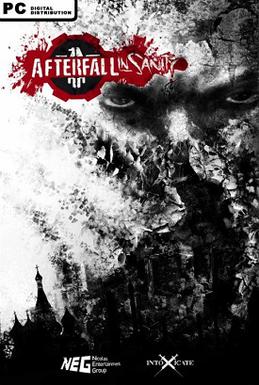
Afterfall: Insanity is a post-apocalyptic video game developed by Intoxicate Studios and published by Nicolas Entertainment Group. It was released for Microsoft Windows on 25 November 2011.
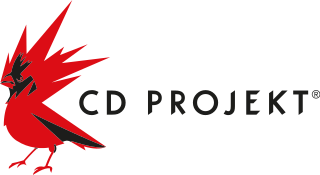
CD Projekt S.A. is a Polish video game developer, publisher and distributor based in Warsaw, founded in May 1994 by Marcin Iwiński and Michał Kiciński. Iwiński and Kiciński were video game retailers before they founded the company, which initially acted as a distributor of foreign video games for the domestic market. The department responsible for developing original games, CD Projekt Red, best known for The Witcher series, was formed in 2002. In 2008, CD Projekt launched the digital distribution service Good Old Games, now known as GOG.com.

Kao the Kangaroo: Mystery of the Volcano is an adventure platformer video game released in 2005 by Tate Interactive.

Tajemnica Statuetki is a Polish-language adventure game developed and published by Metropolis Software House for DOS-based computers in 1993. While it was never released in English, it is known in the English-speaking world as The Mystery of the Statuette. The game was conceived by a team led by Adrian Chmielarz, who used photographs taken in France as static screens within the game. The first title in the adventure game genre that was produced in Poland, its plot revolves around a fictional Interpol agent named John Pollack trying to solve a mystery associated with the thefts of ancient artifacts around the world.
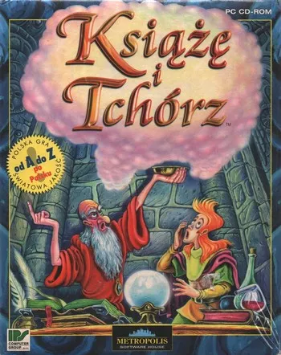
The Prince and the Coward is a 1998 video game created by fantasy writer Jacek Piekara and video game designer Adrian Chmielarz. It was produced by Polish company Metropolis Software in cooperation with the British Revolution Software. A non-official translation in English was released in 2020, and GOG.com re-released it in 2021.

Witchfire is an upcoming first-person shooter video game developed and published by The Astronauts. The game was released for Windows PC in early access in September 2023.
The Astronauts is an independent Polish video game developer based in Warsaw. It was formed in October 2012 by Adrian Chmielarz, Michał Kosieradzki and Andrzej Poznański, who had founded People Can Fly in 2002 but left that studio in August 2012 after it was wholly acquired by Epic Games.
Przegląd Techniczny is a Polish engineering magazine that has been published since 1866. It is one of the oldest magazines on technical topics in Europe. Ewa Mańkiewicz-Cudny serves as the editor-in-chief. 50% of readers are managers of companies or scientific institutes, 75% have higher education, and 85% are aged between 25 and 45 years old. The games reviewed in the magazine inspired Adrian Chmielarz to take up gaming, leading to his creation of many Polish video game classics like Tajemnica Statuetki.
Adrian Chmielarz is a Polish video game designer, programmer, creative director, producer and writer specializing in adventure games and first-person shooters. Chmielarz has co-founded and led Metropolis Software, People Can Fly and The Astronauts. He is one of the most prominent Polish video gaming figures, and has been described as one of the "most divisive" figures in the industry.

Marienbad was a 1962 Polish puzzle mainframe game created by Elwro engineer Witold Podgórski in Wrocław, Poland for its Odra 1003. It was an adaption of the logic game nim. Inspired by the discussion in the magazine Przekrój of a variant of nim in the 1961 film Last Year at Marienbad, named "Marienbad" by the magazine, Podgórski programmed the game for the in-development 1003 mainframe, released in 1963. The game had players opposing the computer in alternating rounds of removing matches from a set, with the last player to take a match the loser. As the computer always played the optimal moves, it was essentially unbeatable.
Gry-Online is a group of Polish websites devoted to computer games and electronic entertainment. Founded by Mariusz Klamra, Wojciech Antonowicz and Rafał Swaczyna, the group has grown to include GRYOnline.pl, TVGry.pl, Gameplay.pl, and Gamepressure. In 2017, the German branch of the French publisher Webedia Group bought Gry-OnLine from Empik, thereby entering the Polish market.

Katharsis is a horizontally scrolling shooter from Polish developer Metropolis Software House and published by CD Projekt in 1997.
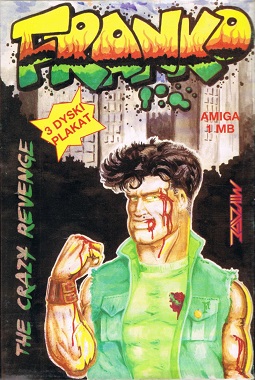
Franko: The Crazy Revenge is a side-scrolling beat 'em up computer game developed by the Polish Szczecin-based studio World Software for the Amiga in 1994, later ported to MS-DOS compatible operating systems in 1996. It follows the titular Franko causing mayhem on the streets of Szczecin to avenge his fallen friend Alex.
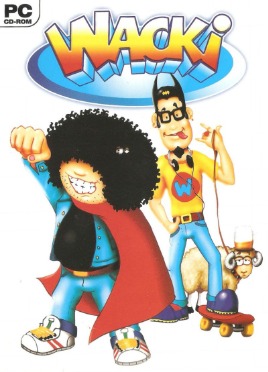
Wacki: Kosmiczna Rozgrywka is an adventure game by Seven Stars Multimedia released on July 1, 1998 for Windows.
Poland is a major video game market and home to one of the largest video game industries in the world. In 2022, Poland became the world’s fourth largest exporter of video games and Polish publicly-traded gaming companies were worth over €12 billion. The game studios in the country employ around 10,000 people and release almost 500 new games annually.















